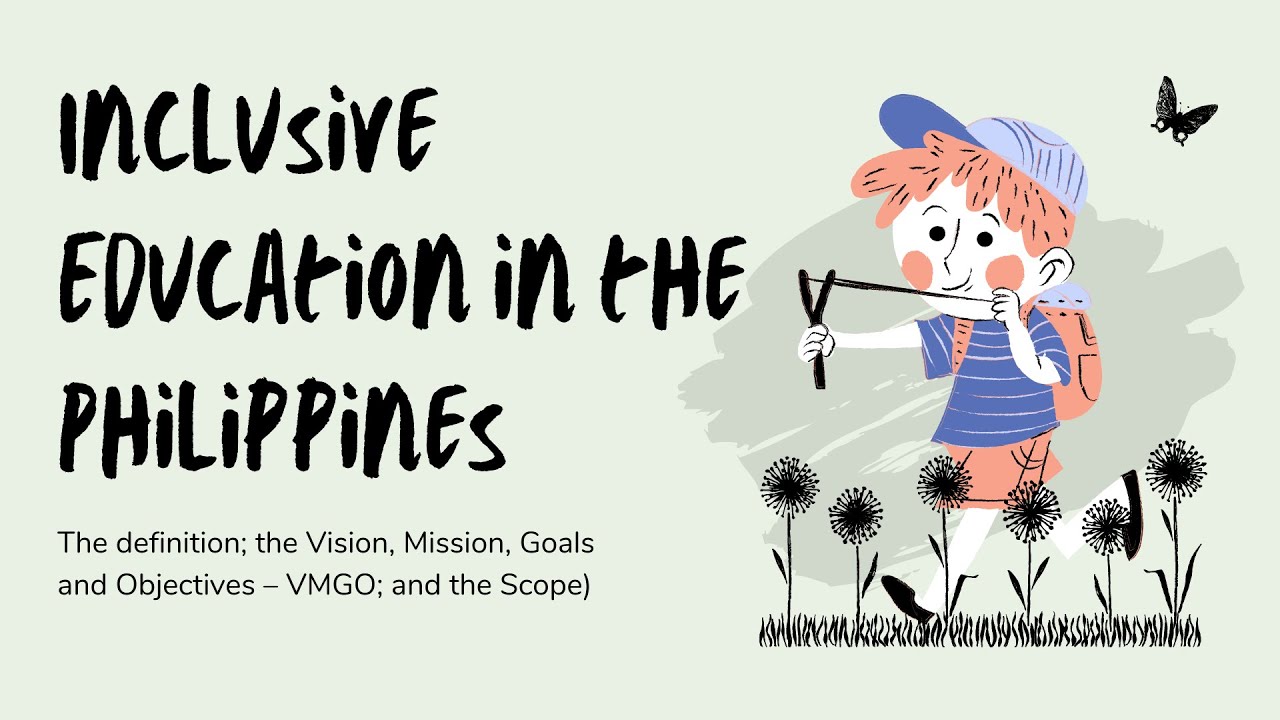Pendidikan Inklusif Sama dengan Pendidikan Luar Biasa?
Summary
TLDRThe transcript discusses inclusive education and its significance in accommodating children with disabilities alongside their peers. It distinguishes between special education, which focuses on specific disabilities, and inclusive education, which takes a holistic approach to meet the diverse learning needs of all students. The dialogue emphasizes the need for societal acceptance, the importance of adapting educational practices, and the responsibility of educators and communities to foster inclusive environments. Ultimately, it advocates for recognizing each child's unique strengths, promoting equality, and creating supportive spaces that celebrate diversity in learning.
Takeaways
- 😀 Special education focuses on children with disabilities, while inclusive education considers all children as unique individuals with diverse needs.
- 📚 Inclusive education promotes a holistic view of students, encouraging acceptance and respect for individual differences.
- 🔄 There has been a shift in societal attitudes towards disabilities, influencing more integrated educational practices.
- 🤝 Inclusive education allows children with disabilities to learn alongside their peers in regular schools, fostering social integration.
- 🎯 The primary goal of education should be child-centered, addressing individual learning barriers and needs.
- ⚖️ Inclusive education emphasizes equal opportunities for all students, regardless of their physical, intellectual, or emotional conditions.
- 🛠️ Schools implementing inclusive education should adapt their curricula, teaching methods, and strategies to accommodate all learners.
- 🌍 The principles of inclusivity encourage collaboration, respect, and empathy among students and educators.
- ❤️ The core of inclusive education is a genuine commitment to caring for and supporting one another in the learning process.
- ✨ The success of inclusive education relies on the shared responsibility of teachers, students, and the community to foster an inclusive environment.
Q & A
What is inclusive education as discussed in the transcript?
-Inclusive education is an approach that accommodates all children in the educational system, regardless of their physical, intellectual, social, emotional, or linguistic conditions. It emphasizes the importance of responding to diverse educational needs and allowing all children, including those with disabilities, to learn together.
How does the transcript differentiate between special education and inclusive education?
-Special education primarily focuses on providing education to children with disabilities based on their specific labels or characteristics, whereas inclusive education views all children holistically and addresses their individual learning needs without prioritizing labels.
What are the implications of segregated education as mentioned in the script?
-Segregated education creates a dichotomy between 'normal' and 'abnormal' students and can lead to a lack of recognition of children with disabilities as unique individuals. It often results in a uniform approach to education that does not cater to individual needs.
What changes have occurred in special education in Kediri, according to the discussion?
-There have been significant changes in the perception and implementation of special education in Kediri, influenced by societal attitudes towards disabilities, leading to a greater emphasis on inclusivity.
What role do teachers play in implementing inclusive education?
-Teachers are essential in creating an inclusive environment that accommodates diverse learning needs, fostering comfort and acceptance among all students, and viewing diversity as an enrichment of the learning experience.
How is inclusive education aligned with international conventions?
-Inclusive education aligns with international conventions, such as the 1994 Salamanca Statement and the 2006 UN Convention on the Rights of Persons with Disabilities, which advocate for the inclusion of all children in educational settings.
What is the main goal of inclusive education?
-The main goal of inclusive education is to ensure that all children, regardless of their backgrounds or abilities, can participate in and benefit from the educational system, promoting equality and human rights.
What are the challenges faced by children with disabilities in regular schools?
-Children with disabilities often face challenges in adapting to regular school systems that may not be tailored to their specific needs, which can limit their opportunities for education and social interaction.
What values does inclusive education promote?
-Inclusive education promotes values such as respect, care, sharing, and love, encouraging individuals to take responsibility for building a compassionate society that values every member.
Why is it important to recognize individual differences among students?
-Recognizing individual differences is crucial in education because it allows for tailored learning experiences that meet each child's unique needs, ultimately enhancing their educational outcomes and personal development.
Outlines

This section is available to paid users only. Please upgrade to access this part.
Upgrade NowMindmap

This section is available to paid users only. Please upgrade to access this part.
Upgrade NowKeywords

This section is available to paid users only. Please upgrade to access this part.
Upgrade NowHighlights

This section is available to paid users only. Please upgrade to access this part.
Upgrade NowTranscripts

This section is available to paid users only. Please upgrade to access this part.
Upgrade NowBrowse More Related Video

#InclusiveEducation#BEd Inclusive Education-Definiton, Aspects, Importance and Aims & Objectives.

Inclusive Education in the Philippines (Definition, Policies, and Laws)

School awareness and School readiness b. ed 2nd year

Penataan Lingkungan PAUD Inklusif

APPI JATIM: Webinar 2.0: Best Practice Pendidikan Inklusif & Peran Psikologi Pendidikan @TVpsikologi

Kindling Inclusion Part 2: Meet the Parents
5.0 / 5 (0 votes)